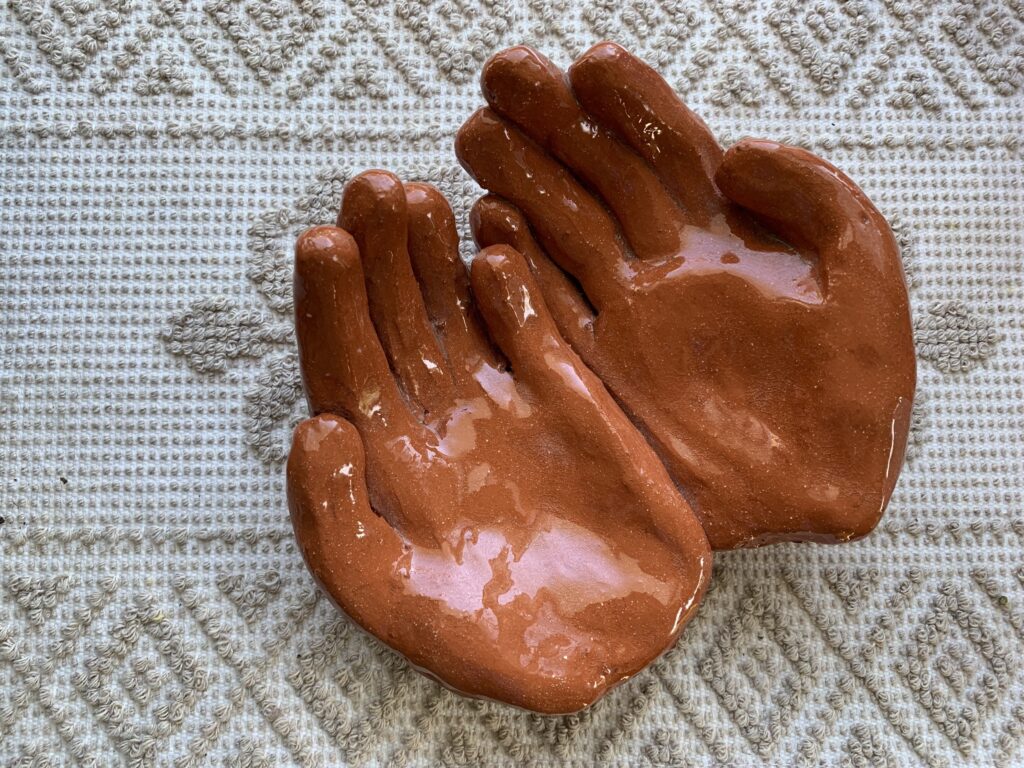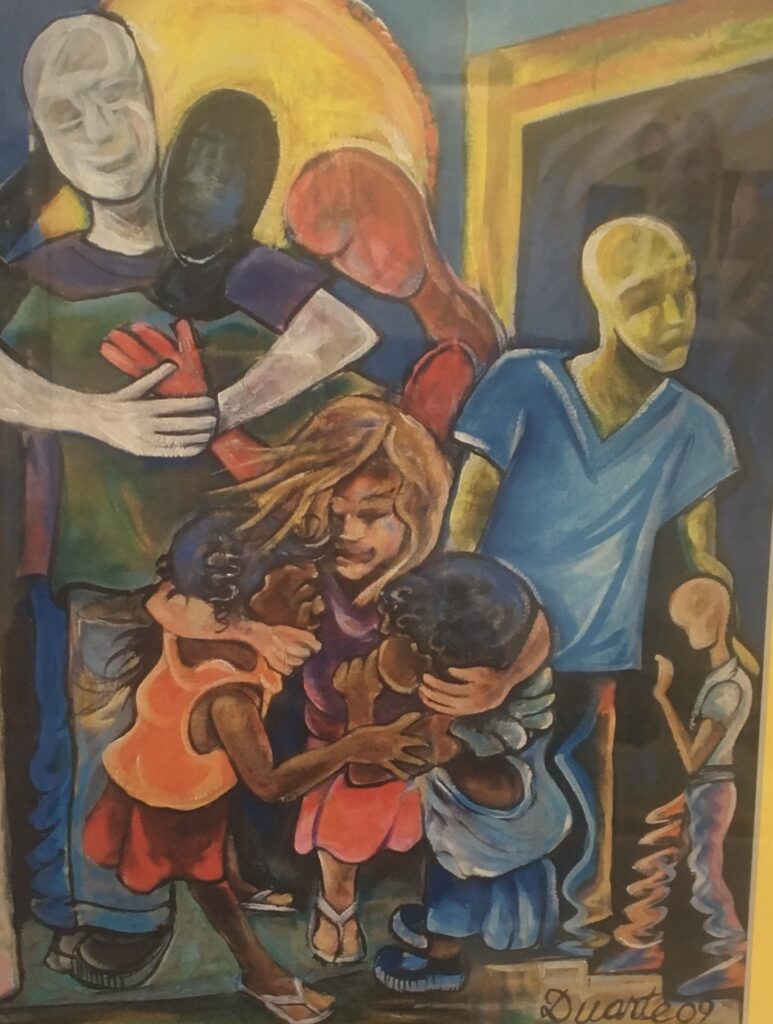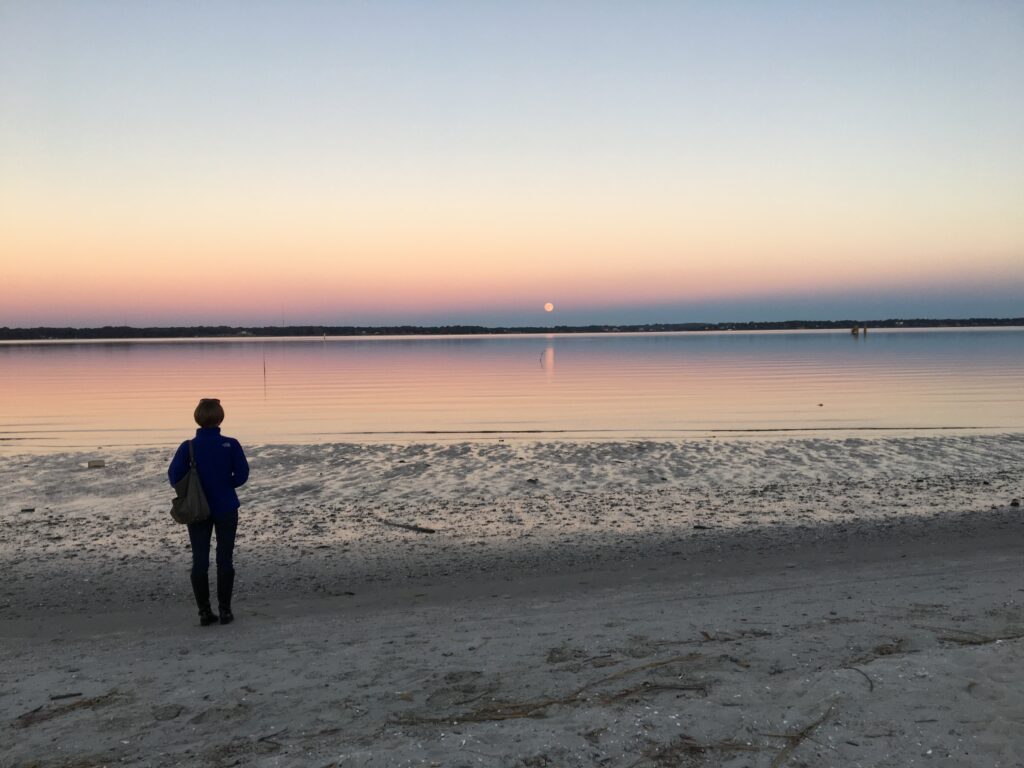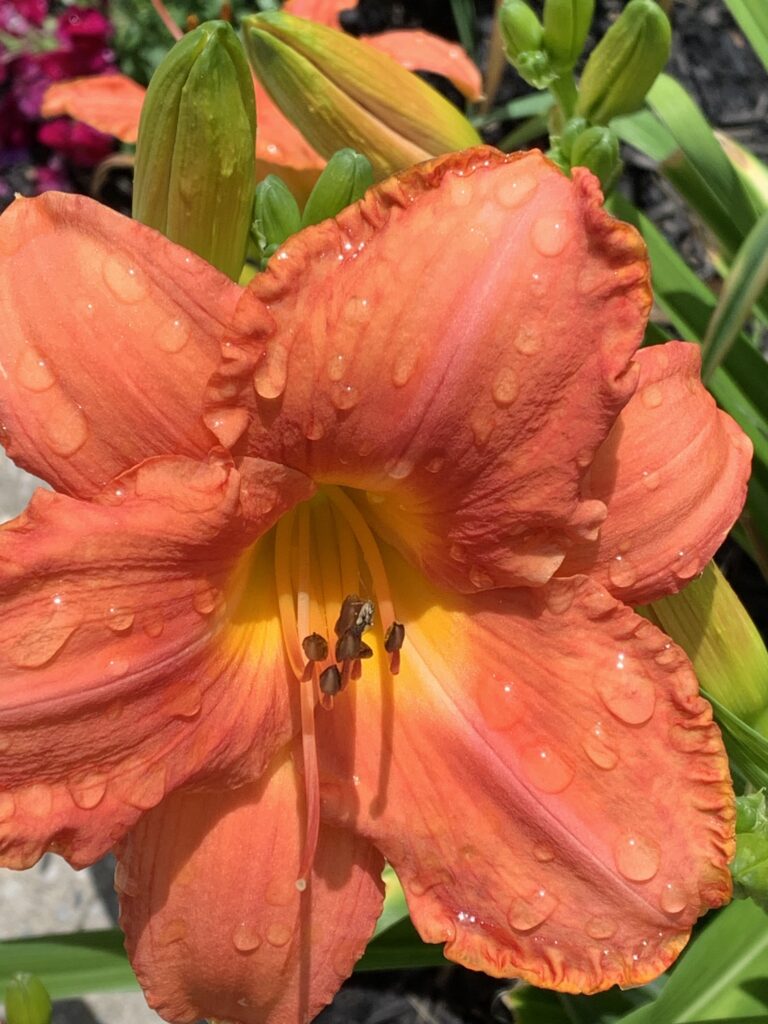Do you have storage places that hold treasures for years, tucked back into an overlooked corner or hidden beneath a pile of unused linens or clothing? Something special enough to keep but long forgotten. While looking through my cedar chest the other day, I lifted a heavy item encased in paper and bubble wrap from beneath a stack of dishtowels. I carefully removed the packaging and caught my breath.
There was a red clay sculpture of cupped hands made by my youngest daughter decades ago when she was in middle school. It used to sit on an end table in our home, but after moving into a small apartment 13 years ago, I stored it along with other things I wanted to keep but had no place to display.
I held the sculpture and followed their easy curve with my fingers. As they moved over the red clay, a tightness that had taken up residence in my body and spirit began to loosen. Long fed by fear and worry, the fist curled up in my gut began to unclench. The hands offered an invitation: Relax. Open. I tried.

A cleansing sigh passed through my lips. Tears and laughter pushed each other about in their rush to respond. I sat back on a nearby chair, closed my eyes and took a few deep breaths. The sculpture conveyed a profound sense of receptivity. Solid and steady, they seemed comfortable with vulnerability. Something, it seems, often I am not.
What, I wondered, sustains such an attitude as I move through life? Trust, I think. Trust that in the end, good will prevail. Faith in a pervasive Goodness that enlivens and dwells within and without all creation. It is called by many names: God, Love, Ground of Being, and it persists even through suffering and dangerous times. How else to explain a John Lewis? The thousands of refugees risking lives to walk to our borders? Gazans who rise each morning determined to survive. People around the globe who endure disasters, both of natural origin and those brought upon them by systemic injustice, and people motivated by ignorance, fear, and hatred.
Many open-hearted people don’t just survive. They go forward to do good where they are. Somehow, they see beyond their current situation and trust that in the big picture even small efforts make a difference. They refuse to give into cynicism and despair, believing as others have that “The arc of the moral universe is long, but it bends toward justice.”
This desire to give is another gift of openness and trust.
You may see such people in a parking lot collecting petition signatures to demand change in gerrymandered maps and voter suppression or sharing food at a drive-through pantry. They are companions and, as Mr. Rogers called them, “helpers.”
This sense of embrace is another gift the cupped-hands sculpture offered. My neighbor felt it too. She came over for dinner and saw them sitting on the small stand that sits beneath a mirror at one end of the dining table. I had made space for them between a vigil candle, some poetry books, and a Galileo’s thermometer. She looked at them for a while and, not taking her gaze from them, said, “They are so welcoming.”
Yes. The hands expressed willingness to hold. To comfort and care. To simply “be with,” which isn’t simple at all. They conveyed not only openness but also hope. The little hands reminded me that I am held and loved and treasured for what who I am and what I have been given to share, when I’m up for it and when I’m not.

The sculpture encouraged me to open and receive whatever each day would bring. To trust that no matter what it was, that the Goodness and Love in the world, in people, in community, would hold it with me. To suffer. To celebrate. To work. To rest. I wouldn’t have to hold it alone.
It reminded me that sometimes I need the hands of others and sometimes I must be the hands for others, living with faith in Goodness even in dark times.
How did the small sculpture communicate all that? Did they always, and I was just too busy raising kids, working, and navigating a difficult marriage to notice? No. It is the gift of true art of all kinds. Art isn’t a static creation. It’s an encounter, a conversation. What the painting, drawing, words, or music communicate has as much to do with the one who experiences them as it does with what the artist has given. Different grace at different times depending on what the observer brings: Fullness. Need. Joy. Despair.
The little hands spoke to the need I brought. I’m grateful for the moment to hear them.
…yours are the hands, with which he blesses all the world… Christ has no body now on earth but yours.
Teresa of Avila



